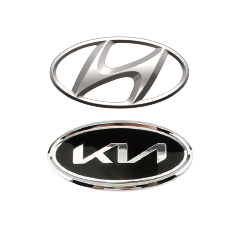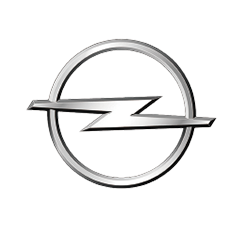"A. What shippers need to know about miscellaneous freight forwarding charges
B.CIC fee
C.CFS fee
D.EBS charges
E.LOCAL CHARGE (local costs)
F.Several trade modes between the cost of bearing
F. The cost of several modes of trade between the bearer?
First, the owner needs to understand the various freight forwarding miscellaneous charges
Shipping prices in addition to "pure" freight, there are a variety of miscellaneous fees, some of these miscellaneous fees are charged by the shipowner, some of the port of shipment / port of destination terminal charges, there are some of the freight forwarders to set up their own name charged. Moreover, many of these charges do not have clear standards and are very flexible. In addition to charging the consignor, some fees will be charged to the consignee. This is very easy to produce two traps: First, some freight forwarders make up names to charge more.
Second, the freight forwarder in the consignee and the consignor to regulate, transfer part of the cost.
Generally, the consignor to find the freight forwarder, the consignor is the patron, the freight forwarder will try to lower the cost to please the consignor, so less charges, and to the port of destination to collect more money from the customer (consignee), demolition of the east wall to make up for the west wall, and vice versa. This is why the same batch of goods, if we do is CIF, we find their own freight forwarding, the cost is relatively low; and do FOB by the customer designated freight forwarding words, RMB miscellaneous fee is much higher reasons.
Knowing these facts, we understand that we can not be greedy for a moment of cheapness, thinking that the lower the price is the better. And must be determined in advance the composition of the price, to avoid some bad freight forwarders out of the shipment of arbitrary charges or pass on to the customer, affecting our feelings and cooperation with customers.
First of all, we should have a certain understanding of the composition of the transport and miscellaneous charges, and learn to distinguish between the "rules of the trade" charges and charges.
Common miscellaneous fees include:?
1.ORC: OriginReceivingCharge;?
2.DDC: Destination Delivery Charge;?
3.THC: TerminalHandlingCharge;?
4.BAF: BunkerAdjustedFactor, or FAF (FuelAdjustedFactor);?
5. CAF: CurrencyAdjustmentFactor;?
6.DOC: Document Fee;?
7. PSS: Peak Season Surcharge;?
8.AMS: AmericaManifestSystem (U.S. Manifest System).
?
CIC fee
CIC fee is container inbalance charge abbreviation, the Chinese meaning is: "" container imbalance surcharge "", also translated as "equipment management fee", the formation of the CIC fee is mainly due to the following reasons:
1. Seasonal changes in the world's liner shipping routes lead to cargo flow imbalance: Western countries are usually at the beginning of the year is the off-season for cargo transport, April and May box volume gradually rose, the amount of trade began to increase, to Christmas before the increase in trade volume will lead to a small boom.
2. The imbalance of trade volume between countries or regions at both ends of the route: the goods exported from China and other East Asian countries to Europe are far more than the goods imported from Europe to China and other East Asian regions, and there is a similarly significant problem in the Far East North America route.
3. Differences in the types and nature of imported and exported goods, as well as differences in the standards of freight and handling charges, also contribute to the imbalance between imported and exported containers.
?
In fact, the CIC fee is a following the EBS fee, another overbearing cost, but at present China's exports of liner are in the hands of the alliance of shipping companies, in order to earn greater profits, these shipping companies continue to attach harsh miscellaneous fees, and China's exporters are in a disadvantaged position, in this case, are forced to accept the shipping company's unreasonable price adjustments.
The CFS fee is the most expensive and the most costly fee in the world.
Third, CFS fees
CFS (CONTAINER FREIGHT STATION) is to deal with the place of LCL cargo, it handles LCL cargo handover, loaded with loads, the box will be sent to the CY (Container Yard, Container (Container) Yard), and accepts CY handed over to the imported containers, unloading, cargo handling, storage, and finally dialled to the consignee. At the same time can also be entrusted by the carrier for sealing and the issuance of station receipts and other business. CFS costs, usually to a party how much to calculate. Because CFS is the cost generated by the consolidation, so in the port of shipment and the port of destination have occurred. In FOB conditions, CFS this cost is listed separately to the exporter or factory to collect. (Because FOB is freight to pay, so the cost of the port of shipment is not calculated in the freight); and in the CIF conditions, the port of shipment of CFS costs have been included in the forwarder reported to you within the shipping price, so in the port of shipment is no longer a single collection of CFS. but the importer in the port of destination side still have to pay their side of the CFS fees.
EBS
EBS Fee
Emerent Bunker Surchanges (EBS), in Chinese, means Emergency Bunker Surcharge. This fee is generally because the international crude oil prices continue to rise, more than the ability of shipowners, so shipowners in the market is relatively low, can not increase shipping costs, in order to reduce the cost of loss, and increase the cost.?
How much does EBS charge in general?EBS is only a temporary surcharge, generally it won't stick for a long time, and EBS charges differently according to different periods and going to different regions.
Do I need to pay EBS fee to do FOB? The answer is no, EBS is a surcharge of shipping fee, not belong to FOB local fee, so customers don't need to pay EBS fee when doing FOB. However, at present, some shipping companies can't receive this fee from customers, so they transfer EBS to FOB customers. If customers meet shipping companies or freight forwarders requesting to receive EBS fee, they can try to negotiate with customers and ask them to bear this fee.
?
V. LOCAL CHARGE
LOCAL CHARGE includes the following points (specific costs for reference only, no practical significance): ?
1. Booking fee: RMB290/20', RMB420/40' GP/HQ in general.
2. Customs declaration fee: RMB100-120/publication (if a shipment has N families, then the total customs declaration fee is 100N, in addition to the name of more than 5, every increase of 5 also need to increase the money, we pay the customs broker is such a RMB30/+5 name).
3.THC: RMB370/20', RMB560/40'GP/40'HQ (paid to the port terminal).
4. Documentation fee: (shipping company charge RMB115/BILL).
5. Operation fee: RMB150-200 (general payment on delivery, no prepaid goods).
6.AMS: USD25/RMB210 (US/Canada line).
7. towing card fees (depending on where),: another few period of pick-up period is to speak. Generally 4 period to pick up the box (such as Yong **/An **), plus RMB100/CONTAINER, into the 4 period 5 period dock, plus RMB200/CONTAINER.
LOCAL CHARGE is literally translated as "local charge". Generally refers to in addition to the international air (sea) freight, in the "other country" to generate other costs. These include: customs clearance fees, inspection and quarantine fees, documentation fees, security fees, storage fees, warehousing fees, door-to-door pickup (delivery) fees and other costs. But "the other country's" customs duties and fees are generally not included.
In the commonly used FOB, CIF terminology, for China's import and export enterprises, generally does not produce LOCAL CHARGE, LOCAL CHARGE, LOCAL CHARGE, LOCAL CHARGE, LOCAL CHARGE.
Export CIF, LOCAL CHARGE is borne by the consignee of the other country.
Import FOB, LOCAL CHARGE is borne by the consignor of the other country.
Only goods involved in door-to-door transport, such as door-to-door, port-to-door, door-to-port goods, will produce LOCAL CHARGE.
For example: import EXW, factory pick-up. LOCAL CHARGE from the other country's factory pick-up until the goods shipment of this section are to be borne by our importer.
Export DDU or DDP, fees paid to the designated destination. From the arrival of the goods to the other country's port, until the consignee to the designated location of the LOCAL CHARGE occurred between the exporter to be borne by our country.
?
Sixth, several kinds of trade methods between the cost of bearing
01, factory delivery price (EXW = Ex Works): ? ? ? ?
Place of delivery: factory or warehouse in the exporting country;? Transport: the buyer is responsible for; ? ? Insurance: buyer's responsibility; ? ?? Export formalities: buyer's responsibility; ? ? Import formalities: buyer's responsibility.? ?
02, FOB (FOB = Free on Borad): ? ?
Place of delivery: port of shipment;? Transportation: buyer's responsibility;? Insurance: buyer's responsibility; ? Insurance: buyer's responsibility; ? Export formalities: seller's responsibility;? Import formalities: buyer's responsibility.
03, CIF (Cost+Freight+Insurance, CIF=Cost+Insurance+Freight): ? ?
Place of delivery: port of shipment;? Transport: the seller is responsible for;? Insurance: seller's responsibility; ? ? Export formalities: seller's responsibility; ? Import formalities: seller's responsibility. ?
04, Cost plus Freight (CFR=Cost+Freight): ? ?
Place of delivery: port of shipment; ? Transport: seller's responsibility; ? Insurance: buyer's responsibility; ? Export formalities: seller's responsibility;
Import formalities: buyer's responsibility."




